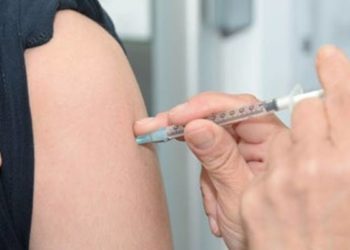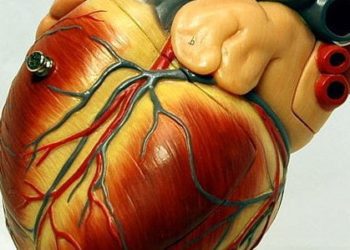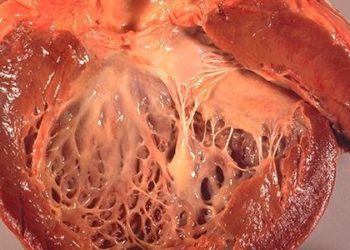Bridging with low molecular weight heparin may not be beneficial for patients with atrial fibrillation or mechanical heart valves
1. There was no significant difference found in thrombosis or bleeding outcomes for patients with atrial fibrillation or mechanical heart valves, where patients were randomly assigned to receive dalteparin or a placebo after an invasive procedure requiring cessation of warfarin.
Evidence Rating Level: 1 (Excellent)
Patients with atrial fibrillation or mechanical heart valves often require the cessation of vitamin K antagonists, namely warfarin, in the days preceding an invasive procedure. Usually, warfarin is withheld for 4-5 days prior to a procedure, and resumed either the same day, or 1-2 days following the procedure. It is uncertain whether or not these patients would benefit from bridging with low molecular weight heparin (LWMH), which would involve providing LWMH for 3-5 days before, and 4 days after the procedure. In theory, this bridging method would decrease risk of bleeding, as LWMH acts as a short acting anticoagulant, and also decrease risk of thromboembolism, since patients spend less time off of anticoagulants. However, a pilot study showed that the thrombosis rate was 3.1% in patients receiving LWMH, most often in patients who had a post-operative bleeding event, which then led to the thrombosis. Therefore, the current double-blind, randomized controlled trial aimed to compare the number of bleeding events and rate of thromboembolism between patients receiving LWMH (specifically dalteparin) post-operatively and patients receiving a placebo: The hypothesis was that the placebo group would have fewer bleeding events and lower rates of thromboembolism.
This study was limited to investigating the effect of bridging post-operatively, since all patients in the study received dalteparin prior to surgery, including in the placebo group. The study population consisted of adult patients with either atrial fibrillation or mechanical heart valve, undergoing an invasive procedure where cessation of warfarin was required. Overall, the results found no significant difference in bleeding events or thromboembolism rate between the placebo and dalteparin groups, suggesting that bridging with LWMH does not provide a benefit to patients.
Click here to read the study in BMJ
Relevant Reading: Single-Arm Study of Bridging Therapy With Low-Molecular-Weight Heparin for Patients at Risk of Arterial Embolism Who Require Temporary Interruption of Warfarin
In-Depth [randomized controlled trial]: The patients in this trial were recruited from 10 thrombosis research sites, located in Canada and India. There were 629 participants randomized to the placebo and 786 to the to the dalteparin groups. 5 days prior to the procedure, warfarin was discontinued, and patients received dalteparin 200 IU/kg 2-3 days before the procedure. Resumption of warfarin occurred the evening of the procedure, and the placebo or dalteparin intervention began the morning after. The follow-up was done at 30 and 90 days. The results of the study showed a major thromboembolism rate at 90 days of 1.2% for the placebo group, and 1.0% for dalteparin (p =0.64, risk difference -0.3%, 95% CI -1.3 to 0.8). A major bleeding event at 90 days occurred in 2.0% of patients for the placebo, and 1.3% for dalteparin (p =-0.32, risk diff -0.7, 95% CI -2.0 to 0.7). At the 30 day mark, there was also no significant difference in the risk of either major thromboembolism or a major bleeding event, with 3.2% of the placebo group and 2.3% of the dalteparin group having these events (p = 0.28, risk diff -0.9, 95% CI -2.6 to 0.8). In conclusion, the use of LWMH dalteparin as a form of post-operative bridging is not advantageous for preventing thrombosis or bleeding events, in patients undergoing procedures were warfarin has to be withheld.
Image: PD
©2021 2 Minute Medicine, Inc. All rights reserved. No works may be reproduced without expressed written consent from 2 Minute Medicine, Inc. Inquire about licensing here. No article should be construed as medical advice and is not intended as such by the authors or by 2 Minute Medicine, Inc.









